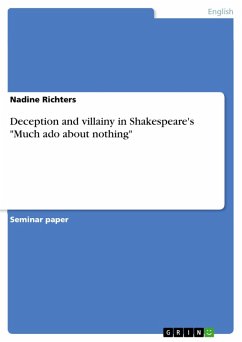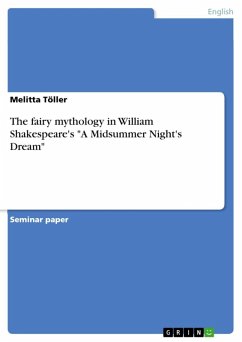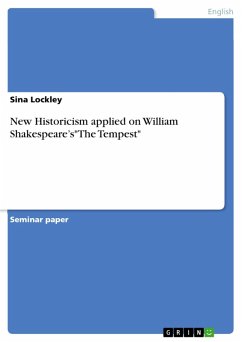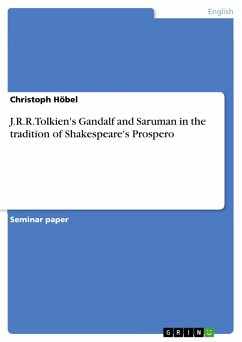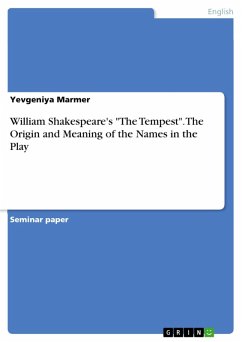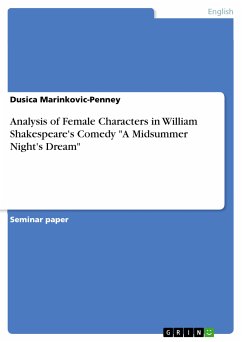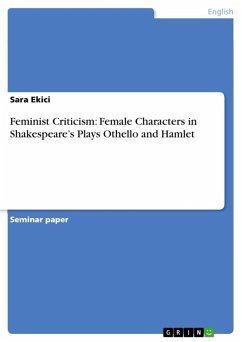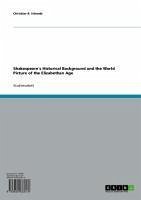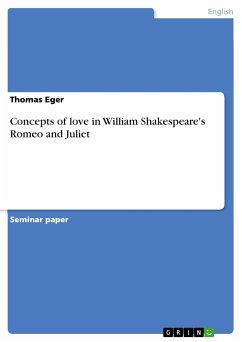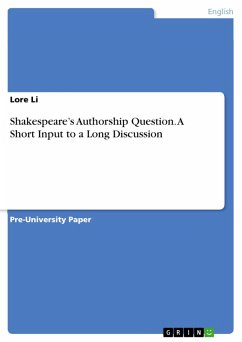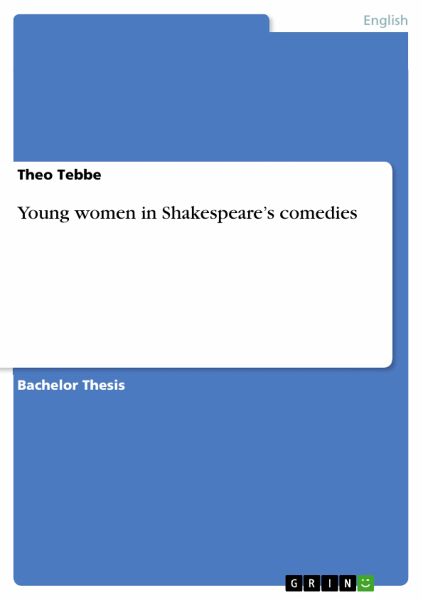
Young women in Shakespeare's comedies (eBook, ePUB)
Versandkostenfrei!
Sofort per Download lieferbar
Statt: 27,95 €**
18,99 €
inkl. MwSt. und vom Verlag festgesetzt.
**Preis der gedruckten Ausgabe (Broschiertes Buch)
Alle Infos zum eBook verschenkenWeitere Ausgaben:

PAYBACK Punkte
0 °P sammeln!
Bachelor Thesis from the year 2008 in the subject English Language and Literature Studies - Literature, grade: 1,7, University of Osnabrück, language: English, abstract: Compared to other writers of his time, Shakespeare introduces an unusual amount of deep female characters in his comedies. His representation of women, in particular the ways in which his female roles are interpreted and put on stage, have become topics of scientific interest. Especially the young women often show vitality, great intelligence, and a strong sense of personal independence, which marks them as "queen[s] of comed...
Bachelor Thesis from the year 2008 in the subject English Language and Literature Studies - Literature, grade: 1,7, University of Osnabrück, language: English, abstract: Compared to other writers of his time, Shakespeare introduces an unusual amount of deep female characters in his comedies. His representation of women, in particular the ways in which his female roles are interpreted and put on stage, have become topics of scientific interest. Especially the young women often show vitality, great intelligence, and a strong sense of personal independence, which marks them as "queen[s] of comedy" (Palmer 72). Therefore, they are often referred to as Shakespeare's heroines. In the following, I want to show their importance and point out that each heroine, although they all share character traits, has distinct and unique qualities. In doing so, I will occasionally refer to a secondary literature and involve positions of different critics. Though, my attention will be focussed on the plays treated in this research paper: A Midsummer Night's Dream, As You Like It, Much Ado About Nothing, The Tempest, and Twelfth Night. On the basis of these romantic comedies, I will analyse how the young women are presented and subsequently compare them among one another. In the first part I will look at each heroine individually and introduce their plays. Then I will develop possible similarities between them: Beautiful but unworldly Miranda seems to be totally controlled by her father Prospero, but she shows a strong will in planning a shared future with Ferdinand and she is aware of her superiority to the savage Caliban. Hermia's father similarly chooses her husband. With magic help, however, she and Helena manage to come together with the right partner. Moreover, Helena reveals that she believes in the transformative power of love (MND I.2, 233-4). Viola in Twelfth Night is in a way almost the opposite of Rosalind in As You Like It, although both plays deal with a cross-dressed heroine. Whereas Rosalind can tease Orlando, always knowing that he is in love with her and being moreover able to reveal herself to him whenever she wants, Viola feels trapped in her disguise and has to work for the man she is in love with and even woo another woman on his behalf. Beatrice may not disguise herself in order to show her power like Rosalind, but she is nevertheless a strong female character: she marries only after asserting her dislike for the traditionally minor role of women in marriage and courtship in that time.[...]
Dieser Download kann aus rechtlichen Gründen nur mit Rechnungsadresse in A, B, BG, CY, CZ, D, DK, EW, E, FIN, F, GR, HR, H, IRL, I, LT, L, LR, M, NL, PL, P, R, S, SLO, SK ausgeliefert werden.




